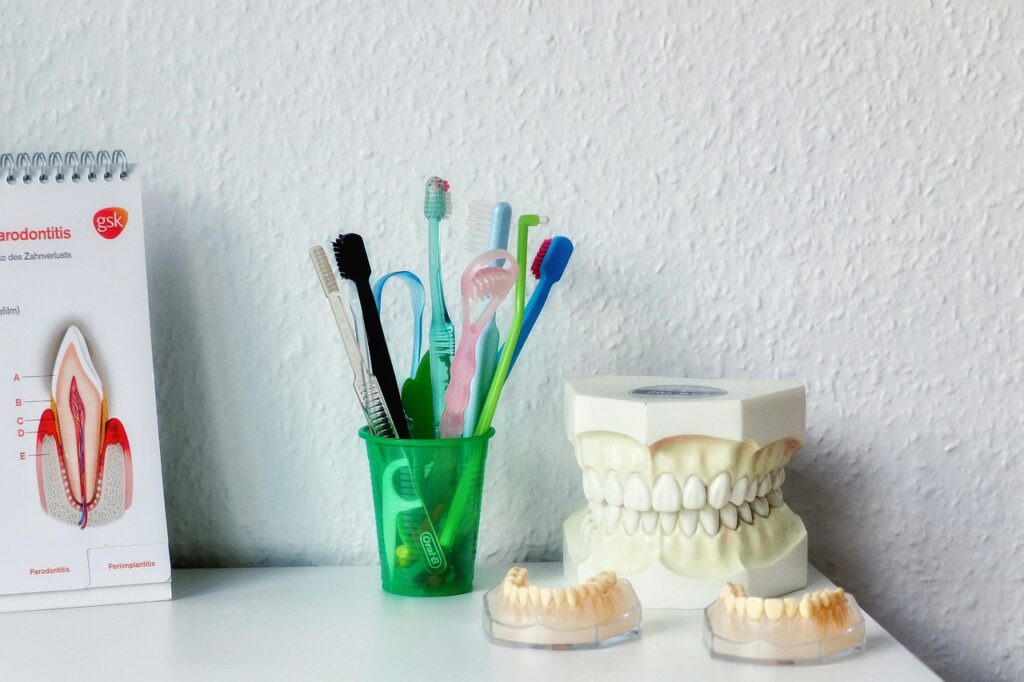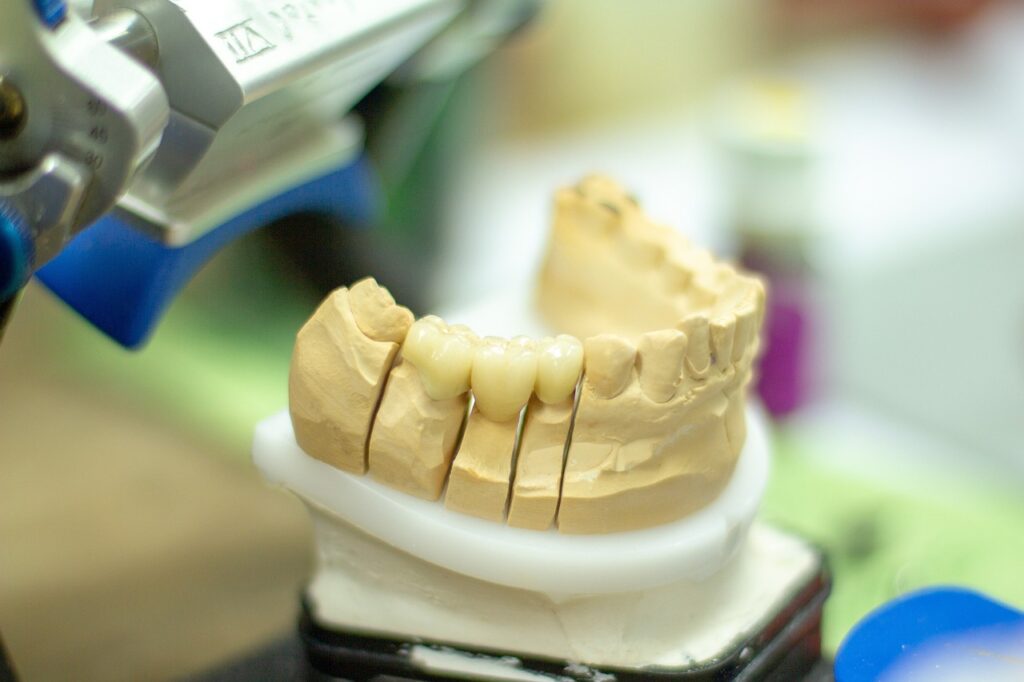If you’ve lost one or more teeth, your dentist may suggest a fixed dental prosthesis. This type of treatment is common for people who want a permanent solution that looks and feels natural. But what exactly is a fixed dental prosthesis? And how do you know which types of fixed dental prostheses exist and what type is best for your needs?
In this complete guide, we’ll break it all down in simple terms. You’ll learn the answer to the question what is a fixed dental prosthesis, different types available, how they’re made, and what to expect during the treatment process.
What Is a Fixed Dental Prosthesis?
A fixed dental prosthesis is a dental restoration that replaces missing teeth and stays permanently in your mouth. Unlike removable dentures, you don’t take it out at night. It’s either cemented onto your natural teeth or attached to dental implants.
The goal is to give you back full chewing and speaking ability while also restoring your smile. These prostheses are made to match your natural teeth in shape, color, and size, so they look and feel real.
Let’s take a closer look at the fixed dental prosthesis definition:
A fixed dental prosthesis is a non-removable dental device that replaces one or more missing teeth by anchoring to surrounding teeth or implants.
If you’re wondering how they’re created, the manufacture of a dental prosthesis involves detailed planning, scans or impressions, and high-precision dental lab work. The process ensures that the prosthesis fits comfortably and functions well.

Why Choose a Fixed Prosthesis?
Losing teeth can affect more than just your appearance. It can also change how you chew, speak, and even how your jaw lines up. When teeth are missing for too long, nearby teeth can shift, and the jawbone can begin to shrink.
A fixed prosthesis helps prevent these problems. It holds your remaining teeth in place and keeps your jawbone strong by providing the pressure and stimulation that natural teeth would.
Many patients prefer fixed prostheses over removable ones because they feel more secure, require less day-to-day maintenance, and allow them to eat a wider variety of foods.
You can learn more about this option here: fixed prosthesis
Types of Fixed Dental Prostheses
There are several types of fixed dental prostheses, each made for a different situation. Your dentist will recommend the one that suits your case best.
1. Crowns
A crown is used to cover and protect a damaged tooth. It acts like a cap that restores the tooth’s shape, size, and strength. Crowns are also placed on top of dental implants to replace a single missing tooth.
They are made from ceramic, porcelain, metal, or a mix of materials. Crowns are usually chosen when the tooth root is still healthy but the visible part of the tooth is too damaged to function on its own.
2. Bridges
A dental bridge fills a gap left by one or more missing teeth. It’s held in place by the teeth on either side of the gap (called abutment teeth), which are covered with crowns. The middle part, called a pontic, is the artificial tooth that “bridges” the gap.
There are different types of bridges, such as traditional bridges, cantilever bridges, and Maryland bridges, depending on how they’re supported.
Bridges are one of the most popular types of fixed dental prostheses for patients missing a few teeth in a row.
3. Implant-Supported Prostheses
This option uses dental implants as the foundation. Implants are small titanium posts dentists place into the jawbone. Once healed, they can hold a crown, bridge, or even a full arch of teeth.
Implant-supported prostheses are the most stable and natural-feeling type, according to many. They don’t rely on neighboring teeth for support and help prevent bone loss.
If you are missing all your teeth in one or both jaws, your dentist might recommend a full-arch fixed prosthesis supported by several implants.
You can read more about this in the section on fixed prosthesis.
4. Inlays and Onlays
Inlays and onlays are used when a tooth has too much damage for a simple filling but doesn’t need a full crown. An inlay fits inside the tooth’s surface, while an onlay also covers one or more of the tooth’s points or “cusps.”
These are less common than crowns or bridges but still considered fixed prostheses because they’re cemented in place.

How Are Fixed Dental Prostheses Made?
The manufacture of a dental prosthesis involves several steps:
- Examination & Planning – Your dentist takes X-rays, photos, or 3D scans of your mouth to understand your needs.
- Tooth or Implant Prep – If you’re getting crowns or bridges, the nearby teeth may need shaping. For implants, small titanium posts are surgically placed into your jawbone.
- Impressions – The dentist takes impressions of your mouth. These are sent to a dental lab where the prosthesis is created.
- Fitting & Adjustments – Once the prosthesis is ready, it’s tested in your mouth. The dentist checks the fit and makes small adjustments.
- Final Placement – The prosthesis is permanently cemented or screwed into place.
We do each step with care to make sure the result looks natural and feels comfortable.
Pros and Cons of Fixed Dental Prostheses
Pros:
- Feel and function like natural teeth
- You don’t need to remove them for cleaning
- Help prevent bone loss and shifting teeth
- Long-lasting with proper care
Cons:
- Higher upfront cost compared to removable options
- Some procedures (like implants) may take time to heal
- Not all patients qualify for every type
Who Should Get a Fixed Dental Prosthesis?
Fixed prostheses are a great option if:
- You’re missing one or more teeth
- You want a long-term solution
- Your gums and jawbone are healthy
- You prefer a natural look and feel
They are also recommended for patients who find removable dentures uncomfortable or inconvenient.
Your dentist will help you choose the right option based on your dental health, number of missing teeth, and personal goals.

Choosing the right dental restoration can feel overwhelming, but understanding your options makes the process easier. Now that you know what a fixed dental prosthesis is and the types of fixed dental prostheses available, you can make a more informed decision with your dentist.
Whether you need a single crown, a bridge, or a full arch supported by implants, fixed prostheses offer a strong, long-term solution. They restore your smile, protect your dental health, and help you enjoy life without worrying about your teeth.
For more help or to schedule a consultation, visit Anveli Dental – a trusted clinic with years of experience in high-quality, permanent dental solutions.

